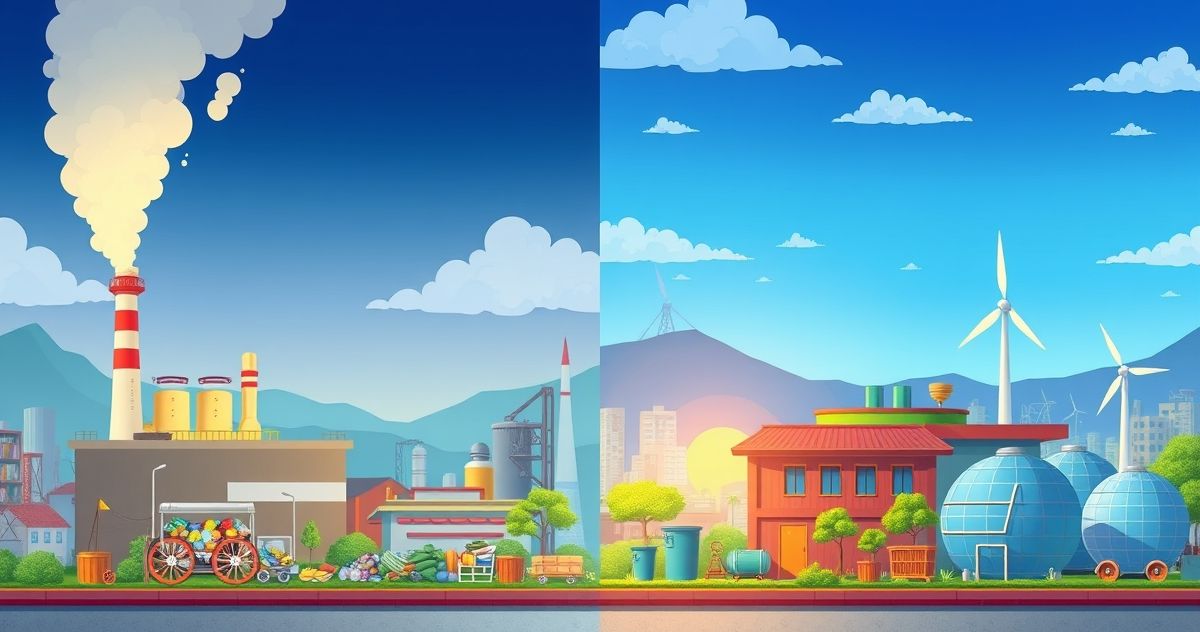
Korea faces critical choice between expanding incineration versus green alternatives based on European waste policy models, representing pivotal decision for environmental sustainability and public health that will shape the nation's waste management future for decades.
Current Waste Management Challenges and Decision Points
Korea's waste management system reaches capacity limits, requiring strategic decisions about infrastructure investment that balance immediate practical needs with long-term environmental sustainability goals and public health considerations.
Critical challenges include:
- Capacity Limitations: Existing facilities approaching maximum waste processing capabilities
- Environmental Impact Concerns: Air quality and emissions considerations from current incineration practices
- Public Health Priorities: Community health impacts from waste processing facility operations
- Economic Efficiency Requirements: Cost-effective solutions for sustainable waste management
European Waste Policy Models and Best Practices
European countries provide successful examples of integrated waste management strategies that prioritize reduction, reuse, recycling, and recovery while minimizing environmental impact through comprehensive policy frameworks.
European model elements include:
- Circular Economy Principles: Waste prevention and material recovery prioritization
- Extended Producer Responsibility: Manufacturers responsible for product lifecycle management
- Advanced Recycling Technologies: High-efficiency sorting and material recovery systems
- Strict Environmental Standards: Rigorous emissions controls and monitoring requirements
Green Alternative Technologies and Implementation
Innovative green alternatives offer environmentally sustainable solutions that reduce waste generation, maximize material recovery, and minimize environmental impact through advanced technology applications.
Green alternatives include:
- Advanced Recycling Systems: Chemical and mechanical recycling for material recovery
- Biological Treatment Processes: Composting and anaerobic digestion for organic waste
- Waste-to-Energy Innovation: Clean energy generation with minimal environmental impact
- Material Recovery Facilities: State-of-the-art sorting and processing centers
Economic Analysis and Cost-Benefit Considerations
Comprehensive economic analysis reveals long-term benefits of green alternatives despite higher initial investment costs, including reduced environmental cleanup expenses and health care costs.
Economic factors include:
- Initial Investment Requirements: Higher upfront costs for advanced green technologies
- Long-term Cost Savings: Reduced environmental remediation and health care expenses
- Revenue Generation Potential: Material recovery and clean energy production income
- Job Creation Opportunities: Employment in green technology and waste management sectors
Public Health and Environmental Impact Assessment
Scientific evidence demonstrates significant public health and environmental benefits of green alternatives compared to traditional incineration, particularly regarding air quality improvement and reduced toxic emissions.
Impact assessments include:
- Air Quality Improvement: Reduced particulate matter and toxic gas emissions
- Community Health Benefits: Lower respiratory disease and cancer risk rates
- Environmental Protection: Reduced soil and water contamination risks
- Climate Change Mitigation: Lower greenhouse gas emissions from waste processing
Policy Implementation and Stakeholder Engagement
Successful transition to green alternatives requires comprehensive policy framework including stakeholder engagement, phased implementation, and continuous monitoring to ensure effectiveness and public acceptance.
Implementation strategies include:
- Phased Transition Planning: Gradual shift from incineration to green alternatives
- Community Engagement: Public consultation and education programs
- Industry Partnership: Collaboration with private sector for technology development
- Regulatory Framework: Clear standards and enforcement mechanisms
Future Outlook and Strategic Recommendations
Korea's decision regarding waste management direction will significantly impact environmental sustainability, public health, and economic development, requiring careful consideration of European best practices and long-term national interests.
Original Korean Article: https://trendy.storydot.kr/blog/korea-waste-policy-green-alternatives


0 Comments